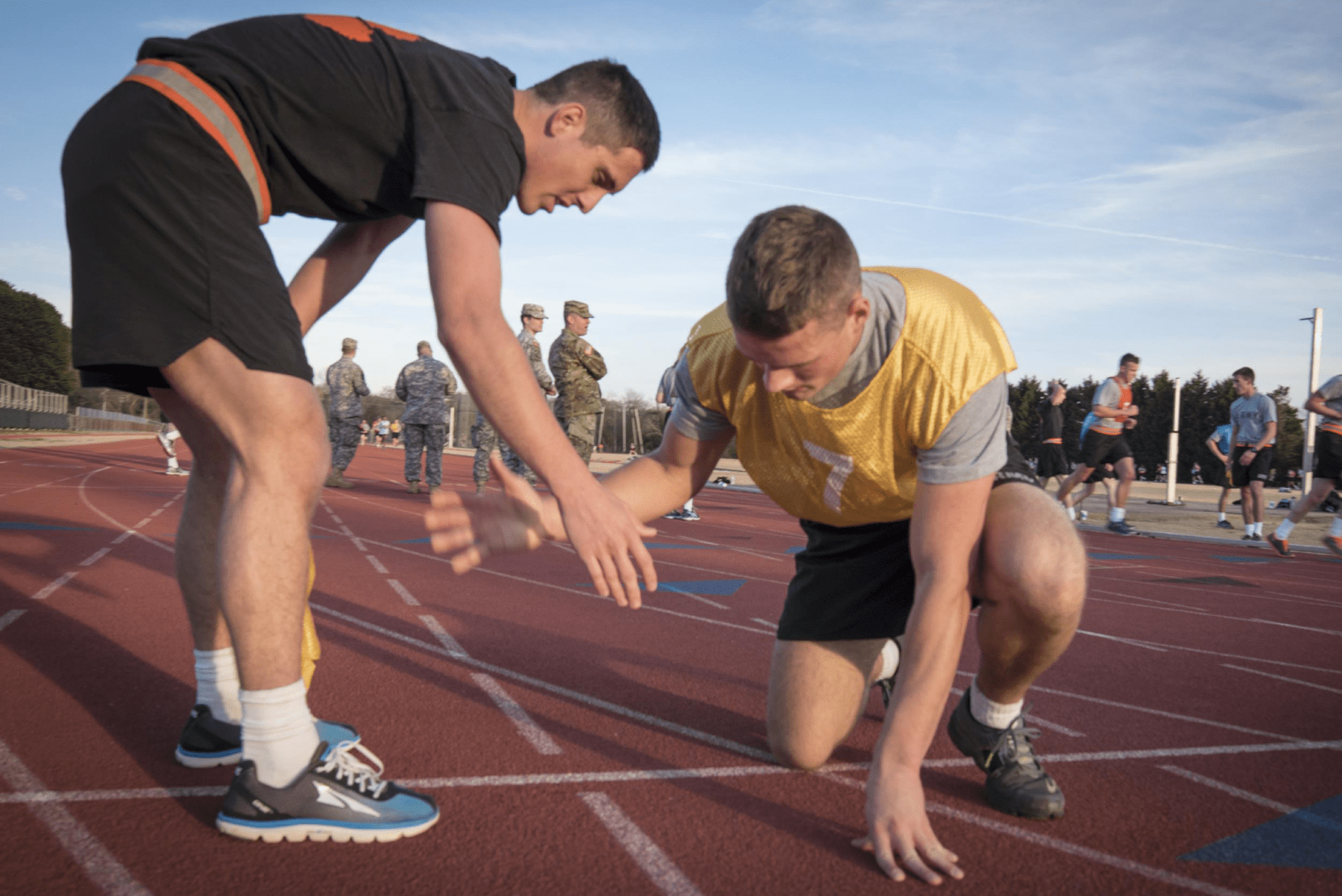Written by OTLR program facilitator Reece Dempster.
Has COVID-19 and the fallout sent you into a spiral in an unknown direction? Do you feel like you’ve been knocked down? Do you feel like you have or are likely to fail?
If you said YES, that’s overwhelmingly normal and what I call being human. At some stage, we are all knocked down and face challenges that are extremely complex in different environments. So why is it that the solution most friends and family give us – “get back up and try again” – so widely used and yet hard to implement?
I have found that getting back up again is the oversimplification of the hardest and the best thing we do as human beings!
The way I see it, getting back up can be broken down into three consecutive stages: WHY, ME & MY. The first stage is to identify your motivation to take on the challenges in stage two, which is yourself, and then in stage three, which is your environment.
WHY
Getting back up takes energy, motivation and heaps of willpower. In the final scenes of the movie Matrix Revolutions, Neo and Smith have fought bitterly, resulting in Neo lying on the ground beaten and shattered. When he begins to get up, with Smith thinking he has won and with no way he could lose, he asks, “Why do you persist?” Neo stands up and answers, “I choose to.”
The ‘Why’ stage in its simplest form is a deeply personal choice that only the individual can make. Choosing your ‘Why’ empowers your mindset and motivates you into action. While finding your ‘Why’ is no easy accomplishment, motivational speaker and highly sought after author Simon Sinek has material that can be a great guide to helping you find your ‘Why.’
Personally, I have been knocked down many times and have experimented using different types of ‘whys.’ While I have found that the motivations of self-preservation and self-promotion have worked for me in the past, neither were as powerful as my choice to get back up for others. In one of the deepest and hardest knockdowns in my life, my choice to get back up was 100% driven by my desire to see my family live happier lives and achieve their goals and aspirations. This choice to show up for others doubled as my ‘Why’ – my main motivator to get back up – and allowed me to achieve new accomplishments that I had previously not thought possible.
Choosing a ‘Why’ so that others can benefit can also be seen on every sports field or court. When an athlete is knocked down, their self-motivation to play will usually get them back up – but those that are motivated for the team’s win will always get up faster.
ME
Sometimes when we are knocked down, we have the motivation to get back up, but we are stopped by ourselves either physically or mentally. In the movie The Pursuit of Happiness, we watch an individual’s approach to getting back up from a career blunder. During this, we see him focus on the things he has to do and can control in order to fit more work into his available time to achieve his goal.
This ‘Me’ stage focuses on the changes you have to make and things you can control in the short-term to create a pathway forward. Mark Mason is an author that shares many stories focused on things you can change and control. He has a unique way of sharing his wisdom, but it allows you as a reader to focus on what really matters and on what is required to get back up again.
In my case, I had to change my relationship with failure: I had an unhealthy relationship with my fear and dread of failure until 2010. These feelings dragged me down and were hard to confront. However, around this time I noticed that some of my failings actually kept leading to very happy moments in my life: meeting my now wife, getting married to her, and then meeting and being with my sons. Throughout this, I felt my relationship with my fear of failure change, and I started to embrace this fear as an opportunity to learn. Once, the fear of failure would cause me to perform badly and hinder me whenever I was knocked down – but now it motivates me to take on new experiences, and to set greater goals and aspirations.
Whether people are involved in sport to win, improve skills or have fun, success in achieving this outcome can only happen when deliberate actions are taken over time and are in line with the chosen focus. This doesn’t discriminate: for an elite swimmer wanting a personal best time at the next race, or a junior team wanting to have fun during the rest of the 2020 season, all sports require a focus and investment in the drills, training and relationships needed to achieve the desired outcome.
MY
Unfortunately, we can have the motivation to get back up and have a good focus on ourselves, but find that we are unable to because the environment, and the people in it, keep us on the floor. The movie Coach Carter demonstrates this key aspect, where Coach Carter didn’t just want his players to become good athletes and win basketball games, but also wanted to teach the young men how to stand up on their own two feet and succeed in life, even despite the harsh and disadvantaged environment they live in.
The ‘My’ stage is to look at your environment and who is in it, and take ownership by focusing on people or communities who can lift you up. Motivational speaker and author Adam Grant writes extensively on the types of people in any given environment. He identifies how to keep the people that matter in your life, so you can bounce off and support each other to achieve higher levels of success.
Personally, I have had experiences where I have been stereotyped by my ability, demographic and behaviour. When I actively sought to change these to better myself, some people were very critical and some were supportive. I chose to refocus my time on those people that wanted me to be successful. I truly believe that no matter your circumstance, there are always people that want you to be better and do better – you may not know them or have met them yet, but they are out there.
Across all sports, you can find these people in coaches, managers, club captains and club organisers. These are the people volunteering their time to provide opportunities for athletes. So, the next time you think you are alone or need help as an athlete, these people are most likely to help unconditionally – you only need to ask.
When looking at the consecutive stages and complexity of getting back up again, it is easy to see that this is not a simple thing for someone to achieve. Our life journey will have many moments where we fall or are knocked or pushed over. The important thing is that the next time you see someone down and you can help them get back up, help them – you never know when you may need help to get back up again.

